
Top Trending Universities

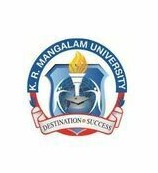
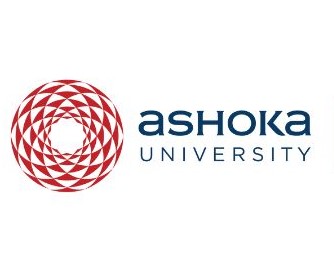
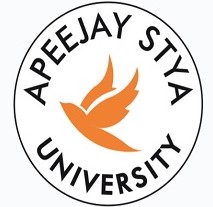

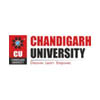



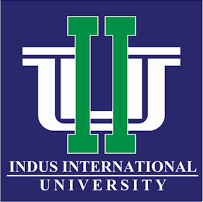
Duration :
2
Average Salary :
50,000 per month
Average Fees :
45,000 to 1 lakh per semester
Job Demand:
M.Tech is a two-year postgraduate degree that focuses on current technologies and serves as a springboard into technological research. The M.Tech programme allows for a great deal of specialisation based on one's undergraduate engineering degree. Anyone holding a bachelor's degree in engineering or technology, on the other hand, is qualified to enrol in this course. Graduates of this programme will have a wide range of job options. Senior Software Engineer, Software Engineer, Design Engineer, Assistant Professor, Postsecondary / Higher Education, Software Developer, Sr. Software Engineer / Developer / Programmer, and others are some of the prominent job roles that students begin with.
| Type of Degree | Masters |
| Full Form of Degree | Master of Technology |
| Duration of course | 2 Years. |
| Age eligibility | No specific age limit |
| Minimum Percentage required | 50-60% in Bachelor's Degree |
| Average Fees of course | 70,000 to 4 lakh INR |
| Average Salary | 3 to 5 lakh INR |
| Job Roles | Senior Software Engineer, Software Engineer, Design Engineer, Assistant Professor, Postsecondary / Higher Education, Software Developer, Sr. Software Engineer / Developer / Programmer, etc. |
| Work Opportunities | Wipro Technologies Ltd., Tata Consultancy Services Limited, Infosys Limited, International Business Machines (IBM) Corp., Cognizant Technology Solutions Corp, Wipro, HCL Technologies Ltd. etc. |
Master of Technology is the full form of M.Tech. Wikipedia claims that "A Master of Engineering (M.E. ), Master of Technology (M.Tech. ), or Master of Science in Engineering (MSc.Engg.) degree is a postgraduate engineering programme in India. After finishing a 4-year undergraduate degree in engineering (Bachelor of Engineering – B.E. or Bachelor of Technology – B.Tech. ), it is usually a 2-year programme (2 or more years in MSc.Engg.). Integrated M.E./M.Tech. Many colleges also offer a 5-year degree programme (B.E./B.Tech. + M.E./M.Tech.)." Artificial Intelligence, Machine Learning, Data Science, Mechatronics, Software Engineering, and other specialties are popular among students.
Students must be aware of the course's qualifying criteria in order to be admitted to the Master of Technology programme. Candidates must have passed all semesters of qualifying examinations in B.Tech/B.E to be eligible for M.Tech. The candidate must take a suitable entrance examination, such as the State PGCET, GATE specific university entrance tests, and so on, in order to be ranked and selected for the appropriate streams. In addition, students in the M.Tech programme must achieve the minimum cut-off marks in their undergraduate studies. Admission to the M.Tech programme has no age restrictions.
Students must be aware of the various eligibility criteria for M.Tech admission. Both entrance examinations and merit-based admission are available for the M.Tech programme. Direct admission and entrance-based admission are both available at some universities. Candidates applying for the M.Tech programme should have results from the different Entrance Exam boards that the selected/opted Universities need. Though the admissions process differs each college, the following are the stages that need be followed in order to gain admission:
The application process for M.Tech courses can be completed both online and offline.
Admissions applications are available on the University's website or by visiting the Admissions Office in person. Candidates must fill out the relevant information in a way that corresponds to the information on the current documents. In addition, candidates should review the list of M.Tech Entrance Exams offered by various universities. Candidates should also ensure that they meet the Education Eligibility criterion with the appropriate minimum score.
In India, the selection process for M.Tech programmes is not uniform across different colleges. However, once an application for a course is submitted, institutions often decide on the ultimate selection of candidates based on their entrance exam scores. Furthermore, the candidates' academic achievements during their undergraduate degrees play an essential influence.
The M.tech programme takes two years to complete.
M.Tech gives you a deeper understanding of the disciplines you studied in your B.Tech programme. Specialisations in engineering areas of specialty are offered. It is a higher-level engineering specialisation course that focuses on more advanced levels of idea and implementation in the field of specialisation within the Computer Science Domain. The M.Tech. curriculum or syllabus is designed to provide eligible individuals with the necessary abilities for application, research, and development in emerging fields of engineering technology. Most public and private universities in India offer a Master of Technology/Engineering programme.
Some of the most popular specialisations and M.Tech courses are listed below:
M.Tech entrance tests are a requirement for candidates to gain admission to their preferred college. Almost all institutions consider an entrance exam to be a vital screening examination to determine whether students should be admitted to the course, according to the M.Tech eligibility. The eligibility to take the entrance test for an M.Tech degree is determined by the course that aspirants are interested in. Subject or age limits, for example, could be imposed depending on specialisation. Students should seek for M.Tech course specifics on college websites for further information.
The following are some of the most common M.Tech entry exams:
The eligibility requirements for M.Tech are determined by the conducting body, and so differ. The college's approach to the entrance exam is heavily influenced by specialisation. Some general rules for M.Tech admission examinations are provided below:
The following is a list of the country's top ten M.Tech colleges:
| S.No. | Name of M.Tech college |
| 1 | IIT Kanpur |
| 2 | IIT Kharagpur |
| 3 | IIT Bombay |
| 4 | IIT Madras |
| 5 | IIT Delhi |
| 6 | BITS Pilani |
| 7 | IIT Roorkee |
| 8 | IIT Bhubaneswar |
| 9 | IIT Guwahati |
| 10 | College of Engineering, Anna University |
The cost of an M.Tech course is determined by the college to which students wish to apply, and hence is not fixed. The cost of an M.Tech degree is determined by a number of factors, including the location, faculty, demand, infrastructure, and amenities accessible to students. In India, the M.Tech programme lasts two years, which means that when choosing universities, students might look for grants to help with the costs. In India, the typical M.Tech fee is between INR 2 and 4 LPA.
| S. No. | M.Tech College | Annual Fee Structure |
| 1. | NIMS, Jaipur | 1 lakh INR |
| 2. | Delhi Technology University | 1.75 lakh INR |
| 3. | SRM, Chennai | 1.2 lakh INR |
| 4. | Indian Institute of Technology, [IIT] Bhubaneswar | 4 lakh INR |
The M.Tech course content varies depending on the specialisation chosen by students. The key core subjects that students will be taught in their curriculum will be determined by their specialisation. As a result, before paying the M.Tech entrance fee, students should thoroughly explore the specialisation of their choosing. The following are some of the subjects that students have the opportunity to study:
When students decide to pursue an M.Tech degree, they should examine M.Tech course specifics to ensure that they are familiar with the programme. "What is M.Tech?" and "Why M.Tech?" are two popular questions that students have. We can make understanding the answers to these questions easier by dividing it down into three short questions:
In India, the M.Tech programme lasts two years. The specifics of the course are determined by the speciality chosen by the students. M.Tech is a higher-level engineering specialty programme that focuses on more advanced levels of idea and implementation in the field of specialisation within the Computer Science Domain. The M.tech curriculum is designed to provide eligible individuals with the necessary abilities for application, research, and development in developing fields of engineering technology. Most public and private universities in India offer a Master of Technology/Engineering programme.
M.Tech Graduates interested in a career in engineering or research can find plenty of opportunities. The work roles will vary depending on the specialisation chosen. Engineering graduates have a plethora of work opportunities with competitive pay packages. Engineering entails experimenting with and testing methodologies in order to arrive at cost-effective and efficient solutions. M.Tech Engineers are in high demand in the industry at all times due to the tremendous scope for improvement and evolution of technology. Graduates of this role are expected to take on a wide range of tasks, making the position particularly dynamic and versatile.
A Master of Technology (M Tech) is a postgraduate programme in the field of technology. The M.Tech programme emphasises the use of existing technologies and serves as a springboard into technological research. M.Tech courses offer a great deal of specialisation depending on one's undergraduate engineering degree. The knowledge that the course imparts to students is extremely practical and relevant, and it can assist students in establishing a satisfying profession.
Demand: Graduates of this degree are in high demand in technology career lines. Following a B.Tech with an M.Tech gives you enough time to gain a strong technical understanding of the subject and gain more control over it. As a result, when students acquire an M.Tech.
For those interested in a career in engineering or research, there are numerous opportunities. The work roles will vary depending on the specialisation chosen. M.Tech Engineering graduates have a plethora of work opportunities with competitive pay packages.
M.Tech Engineers are in high demand in the industry at all times due to the tremendous scope for improvement and evolution of technology. Monthly salaries for M.Tech employment often start at around Rs. 50,000 or more. Over years of professional experience, salary packages grow substantially larger. M.Tech Graduates can find work in a variety of fields. These regions vary depending on the specialisation that students choose to pursue. The following are some of the areas where you can find work:
Salary after completing an M.Tech varies depending on the specialisation chosen by the students. Experience, location, and specialisation are all factors that influence the M.Tech salary. Internships and job placements can help graduates earn more money by broadening their experience. In India, the average M.Tech graduate pay is between INR 3 and 5 LPA. The following is the average M.Tech pay in India:
| Job Role | Annual Salary |
| Assistant Professor | 3.3 lakh INR |
| Food Research Scientist | 3.5 lakh INR |
| Urban Development Specialist | 4 lakh INR |
M.Tech Graduates of this programme can apply for M.Tech government positions. The compensation for govt positions after M.Tech varies little depending on the speciality chosen by students. In India, the compensation for M.Tech graduates working in government jobs is mostly determined by their experience and location. In India, an M.Tech engineering pay ranges from INR 3.5 to 5 LPA. The following are the job titles:
| Top Government Companies | Annual Salary INR |
| HPCL (Hindustan Petroleum Corporation Limited) | 15 lakh |
| DRDO (Defence Research & Development Organisation) | 5.2 lakh |
| National Institute of Plant Genome Research | 5 lakh |
| Defence Research and Development Organisation | 3.5 lakh |
Graduates with an M.Tech. have a number of opportunities in the business sector. The M.Tech pay varies depending on the speciality chosen by students. M.Tech graduates earn an average of INR 3.5 LPA. The following are the job titles:
| Top Private Job Role | Annual Salary |
| Software Engineer | INR 3.5 |
| Design Engineer | INR 3 |
| Assistant Professor | INR 3.3 |
M.Tech graduate's average salary, according to Payscale, is roughly INR 3 - 5 LPA. This figure varies depending on the city, the number of years of experience, the designation, and other factors. The income is also determined by the specialisation chosen by pupils. Internships and job placements might help aspirants improve their chances of receiving a higher income.
